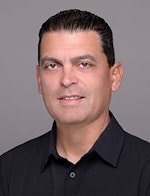Blog
November 8, 2022 | Authored by: Jesus Luzardo
Why utility providers need to think like subscription companies, and why it matters
Most consumers don’t think of utilities as a subscription service.
And most utility providers don’t consider their customers to be subscribers.
Yet, the relationship has many of the characteristics of a typical subscription. It’s time to start thinking that way.
Staying connected to essential services
Utility companies provide life’s most essential services: water, electricity, gas, communication services (mobile, Wi-Fi, etc.). Consumers can’t go without them for more than a few hours.
In comparison, most subscriptions are nonessential or even luxury services. Things like TV streaming, fitness apps or box subscriptions are important to have, but not essential in the same way as water from the faucet, or gas to heat a home in the winter.
A great subscription experience is when a customer feels they are continually connected to the products and services they want and love, in a frictionless and convenient way. Failed transactions and payment errors are managed proactively so the customer doesn’t notice the hiccup, and the opportunity for churn is low.
When it comes to utilities, a great experience is also essential.
When the electricity works and the water flows, the customer doesn’t need to think about it. It’s just there. But when something’s wrong and the service stops – well, that’s another story.
When a utility payment fails
Imagine coming home from an extended vacation and the electricity is down. There was a problem with the credit card, the payment didn’t go through, and the service was cut. This is everybody’s worst nightmare.
The customer’s connection to the utility service relies on seamless recurring payments. However, if there is a payment glitch, and the service is disconnected, the utility company can be certain that the customer will call and put things right.
Customer intent is proportional to the essentiality of the utility service. After all, nobody wants to be off the grid or without gas for long.
Sure, the customer will contact the utility company to fix the payment problem. But is that really the best way?
Think of it as a subscription relationship
Let’s take a step back for a moment and look at the bigger picture. Consider the customer as a subscriber. They are connected to the utility service 24/7, and they rely on it every moment of every day. They pay the bill every month; in most cases, the amount is based on usage, rather than a set “subscription fee.” The monthly payment is a regular touchpoint, where the utility provider and customer connect and interact on a continual basis.
It looks and feels like a subscription relationship, because in fact that’s what it is.
Take a proactive stance on failed recurring payments
For utility companies, being proactive about failed payment transactions might not seem necessary, because a customer will always follow up on an essential service. But why not operate smarter, and nip the problem of failed payments in the bud? Why wait for stressed customers to call, rather than preventing payment errors in the first place? Why wait until the customer is disconnected, meaning precious resources must be spent on getting them reconnected?
Utility companies have a choice: ignore the problem of failed recurring payments.
Or treat your customers like subscribers, and ensure seamless, continuous service and payments that they want and expect. Prevent failed payment transactions before they happen, and free up your operational resources to focus on more important parts of your business.
The world is turning to subscriptions as the most efficient business model; it’s time for utility companies to think like that.
About Author

Jesus Luzardo
Jesus Luzardo is VP, Global Head of Sales at Vindicia. As an international technology industry veteran, Jesus brings over 30 years of experience in commercial, marketing, strategy, operations and technology roles. Prior to Vindicia, Jesus was Head of Marketing for Amdocs in the Caribbean and Latin America region, driving marketing to significantly expand Amdocs’ sales pipeline. Before Amdocs, he was Head of Sales for Utiba (acquired by Amdocs in 2014), focusing on mobile financial services. His experience includes two years as Head of Corporate/B2B and CCO at Cable & Wireless, and 15 years with Motorola. He lives by Vince Lombardi’s motto: “Perfection is not attainable, but if we chase perfection we can catch excellence.” Jesus holds an MBA from Universidad del Zulia (Venezuela), a B.S. in Electronic Engineering from Universidad Rafael Urdaneta (Venezuela), and Advanced Management certifications from Kellogg Institute of Management and IESE (Universidad de Navarra, Spain).